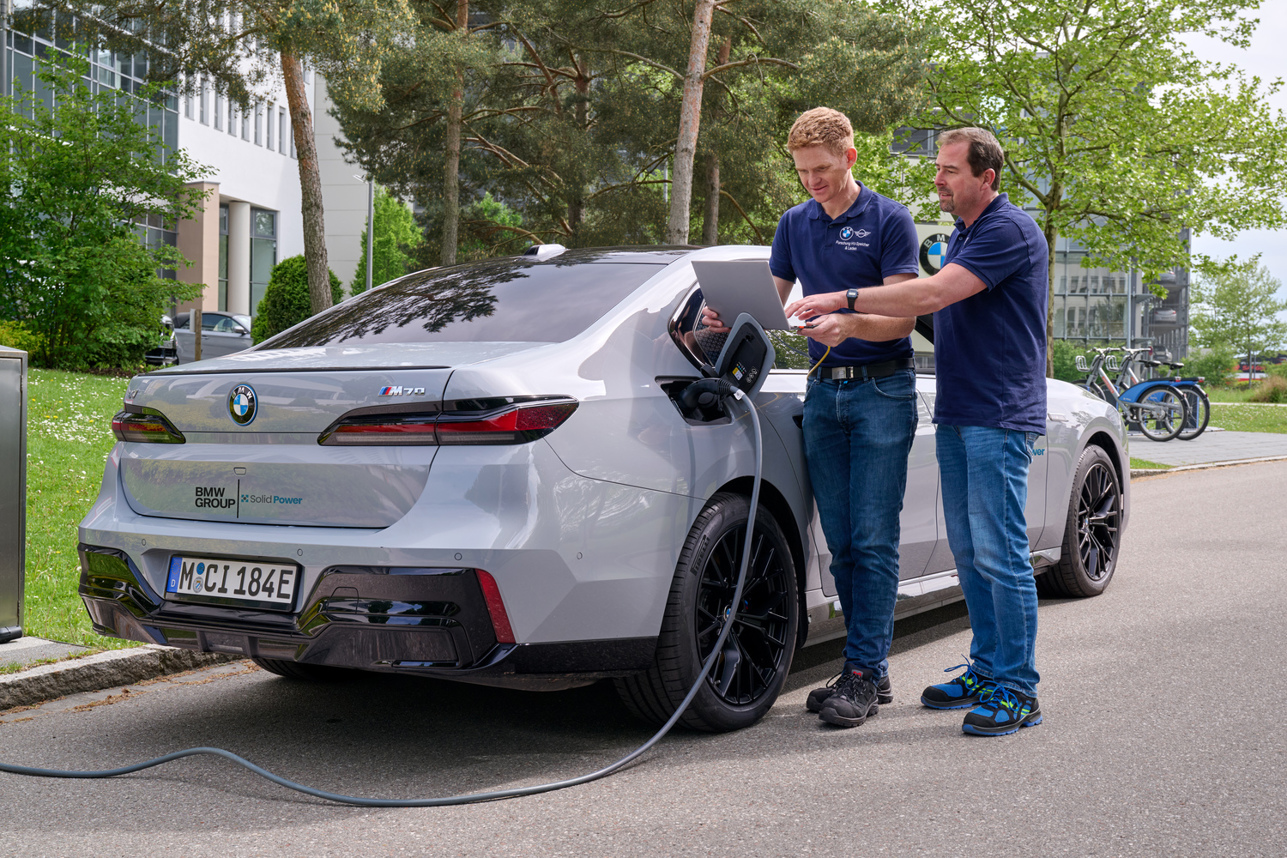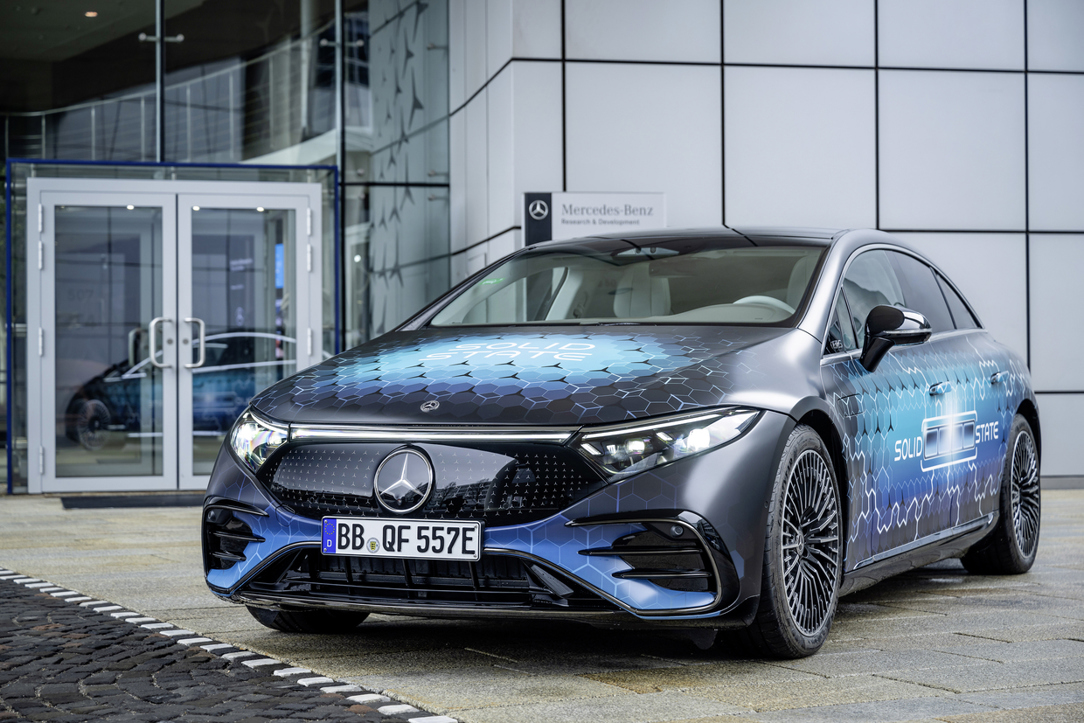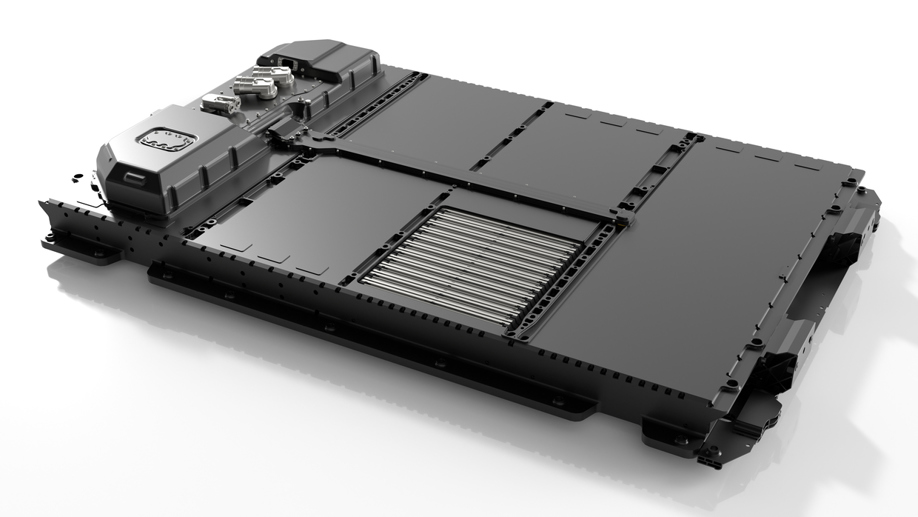- Solid-state batteries could deliver 1000km range with lighter, smaller cells than current EV packs.
- Mass production of solid-state EVs is unlikely before the 2030s due to manufacturing challenges.
- Solid-state tech enables longer range or reduced material use, supporting lower cost and carbon footprint.
The dream of driving an electric vehicle (EV) from Auckland to Wellington on a single charge (without nervously watching the range counter) might be closer than we think.
Carmakers like BMW, Mercedes-Benz, Nissan, Toyota and Stellantis are doubling down on solid-state battery technology in a bid to deliver EVs that can comfortably cover more than 1000km on a single charge.
The long game

BMW is already putting solid-state cells to the test, trialling a prototype i7 fitted with large-format batteries from US outfit Solid Power. These sulphide-based cells promise higher energy density, and BMW plans to use them in its upcoming Neue Klasse models. BMW doesn’t expect mass production before the 2030s, however.
Meanwhile, Mercedes-Benz has been experimenting with solid-state power in a retrofitted EQS since February, partnering with Factorial Energy. The goal? A battery with 25% more energy than what’s on the road today: lighter, more compact and friendlier to vehicle design.

As Mercedes battery boss Uwe Keller puts it, “[These benefits] not only lead to longer vehicle ranges but also affect the vehicle design, for example the architecture. Solid state cells are also less prone to overheating.”
Stellantis, too, is eyeing solid-state as its guiding star, with testing slated for 2026 alongside its Factorial collaboration. According to senior vice president of tech research Anne Laliron, the tech offers a choice between “more range or fewer materials - both reduce cost and carbon footprint.”
Japanese giants

Nissan and Toyota seem more bullish on timing.
Both Japanese carmakers are targeting the second half of this decade to get solid-state batteries into showrooms, with Toyota aiming for 2027 and Nissan gunning for 2028.
Given Nissan’s ongoing internal challenges, though, don’t be surprised if that timeline shifts.
Meanwhile, Honda is quietly working on its own solid-state battery tech, aiming for 2030 alongside its next-generation 0 Series EVs.
The China factor

Over in China, BYD has confirmed it will begin solid-state battery production in 2027, with mass adoption expected by 2030.
Local rival MG believes it can deliver its first such battery as soon as this year, although 2026 or later seems more plausible.
The solid-state promise (and reality check)

Solid-state batteries have long been touted as the silver bullet that will leave today’s lithium-iron-phosphate and nickel-manganese-cobalt chemistries in the dust.
So far, though, mass production has remained elusive thanks to technical and manufacturing hurdles. Still, with the lure of smaller, lighter packs and over 1000km of range, the big names aren’t backing down.
Whether the 2030s will be the true solid-state decade remains to be seen - but the charge is definitely on.





